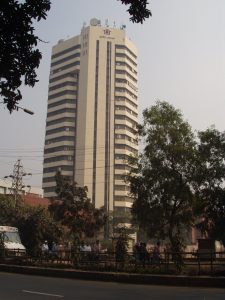Nobel Peace Prize Winner Dr. Muhammad Yunus
Posted: 5 Feb,15 on Achievement
Muhammad Yunus (Bengali: মুহাম্মদ ইউনূস; born 28 June 1940) is a Bangladeshi social ambitious person, banker, economist and civil society pioneer who was honored the Nobel Peace Prize for establishing the Grameen Bank and spearheading the ideas of microcredit and microfinance. In 2006, Yunus and the Grameen Bank were together honored the Nobel Peace Prize “for their efforts through microcredit to create economic and social improvement from beneath”.
In the prize announcement The Norwegian Nobel Committee mentioned:
Muhammad Yunus has shown himself to be a leader who has managed to translate visions into practical action for the benefit of millions of people, not only in Bangladesh, but also in many other countries. Loans to poor people without any financial security had appeared to be an impossible idea. From modest beginnings three decades ago, Yunus has, first and foremost through Grameen Bank, developed micro-credit into an ever more important instrument in the struggle against poverty.

Professor Muhammad Yunus built the Grameen Bank in Bangladesh in 1983, energized by the conviction that credit is a major human right. His goal was to help poor individuals escape from poverty by giving loans on terms suitable to them and by teaching them a couple of sound monetary standards so they could help themselves.

From Dr. Yunus’ personal loan of little measures of cash to penniless basket weavers in Bangladesh in the mid-70s, the Grameen Bank has progressed to the front line of a blossoming world development toward annihilating poverty through microlending. Reproductions of the Grameen Bank model work in more than 100 nations around the world.
Born in 1940 in the seaport city of Chittagong, Professor Yunus studied at Dhaka University in Bangladesh, then got a Fulbright scholarship to study economics at Vanderbilt University. He got his Ph.D. in economics from Vanderbilt in 1969 and the accompanying year turned into a partner educator of economics at Middle Tennessee State University. Coming back to Bangladesh, Yunus headed the economics department at Chittagong University.
From 1993 to 1995, Professor Yunus was a member of the International Counseling Group for the Fourth World Conference on Women, a post to which he was delegated by the UN secretary general. He has served on the Worldwide Commission of Women’s Health, the Advisory Council for Sustainable Monetary Development and the UN Expert Group on Women and Finance.
Professor Yunus is the recipient of numerous international awards for his ideas and endeavors, including the Mohamed Shabdeen Award for Science (1993), Sri Lanka; Humanitarian Award (1993), CARE, USA; World Food Prize (1994), World Food Prize Foundation, USA; lndependence Day Award (1987), Bangladesh’s highest award; King Hussein Humanitarian Leadership Award (2000), King Hussien Foundation, Jordan; Volvo Environment Prize (2003), Volvo Environment Prize Foundation, Sweden; Nikkei Asia Prize for Regional Growth (2004), Nihon Keizai Shimbun, Japan; Franklin D. Roosevelt Freedom Award (2006), Roosevelt Institute of The Netherlands; and the Seoul Peace Prize (2006), Seoul Peace Prize Cultural Foundation, Seoul, Korea. He is a member of the board of the United Nations Foundation.
Source: Wikipedia, nobelprize, Yunus Centre
CATEGORIES
RECENT'S COMMENTED POST
Raw Hasan said "Nice list on the historic places of Bang..."
Web Application Developer (PHP) Needed | ABAC Technologies Ltd said "[…] learn about us, please check w..."
Faria Anan said "Thanks a lot for this describes..."
ABAC Technologies LTD is Top Rated at Upwork said "[…] LTD is a Top Rated Agency at U..."
POPULAR POSTS
Posted by Admin on theFebruary 25th, 2012 with 12 Comments
Posted by Admin on theOctober 23rd, 2014 with 11 Comments
Posted by Admin on theJanuary 6th, 2012 with 8 Comments











